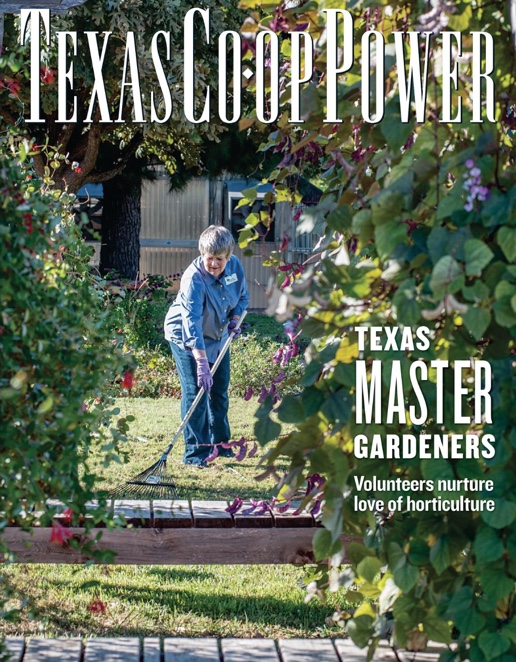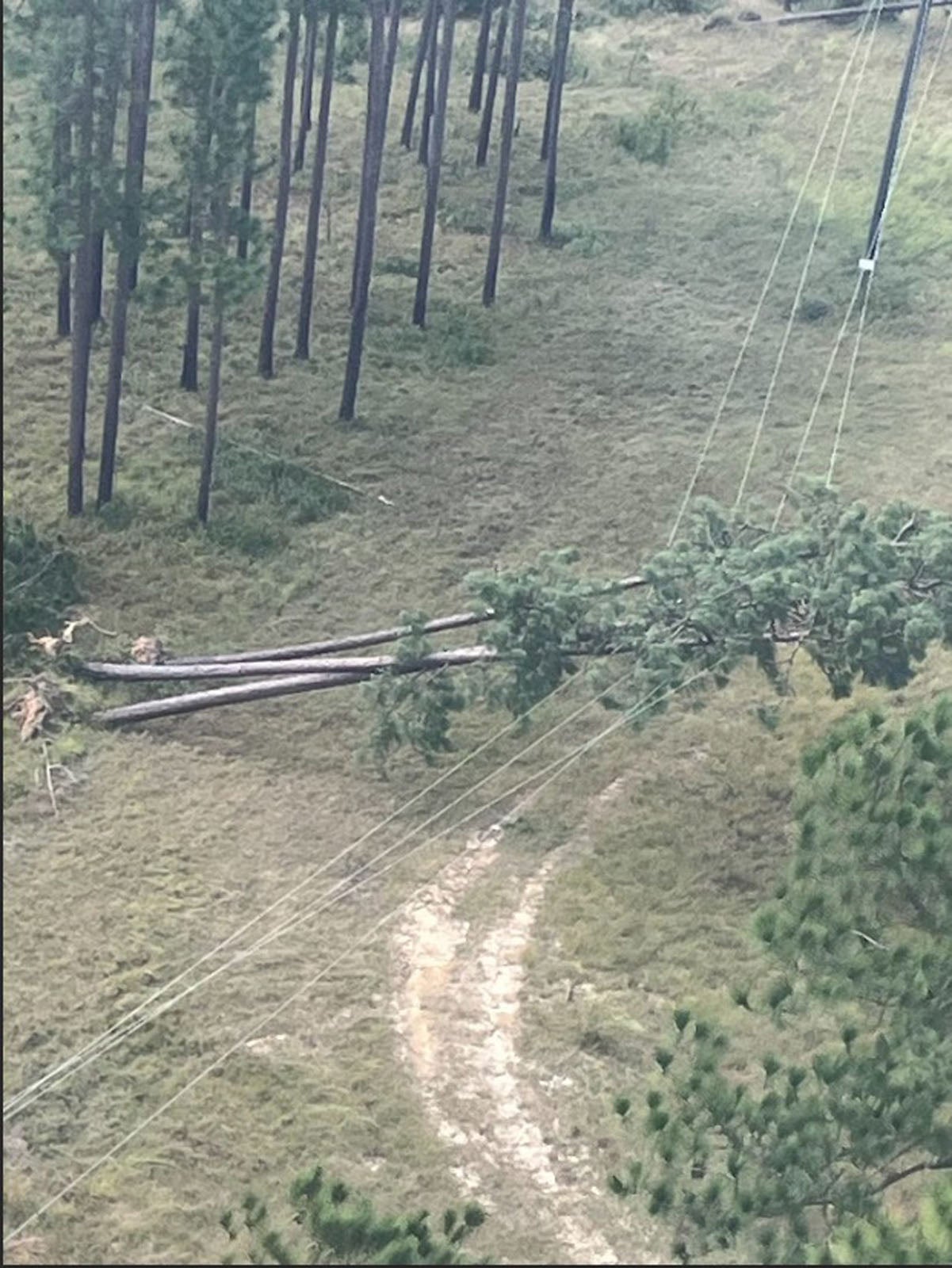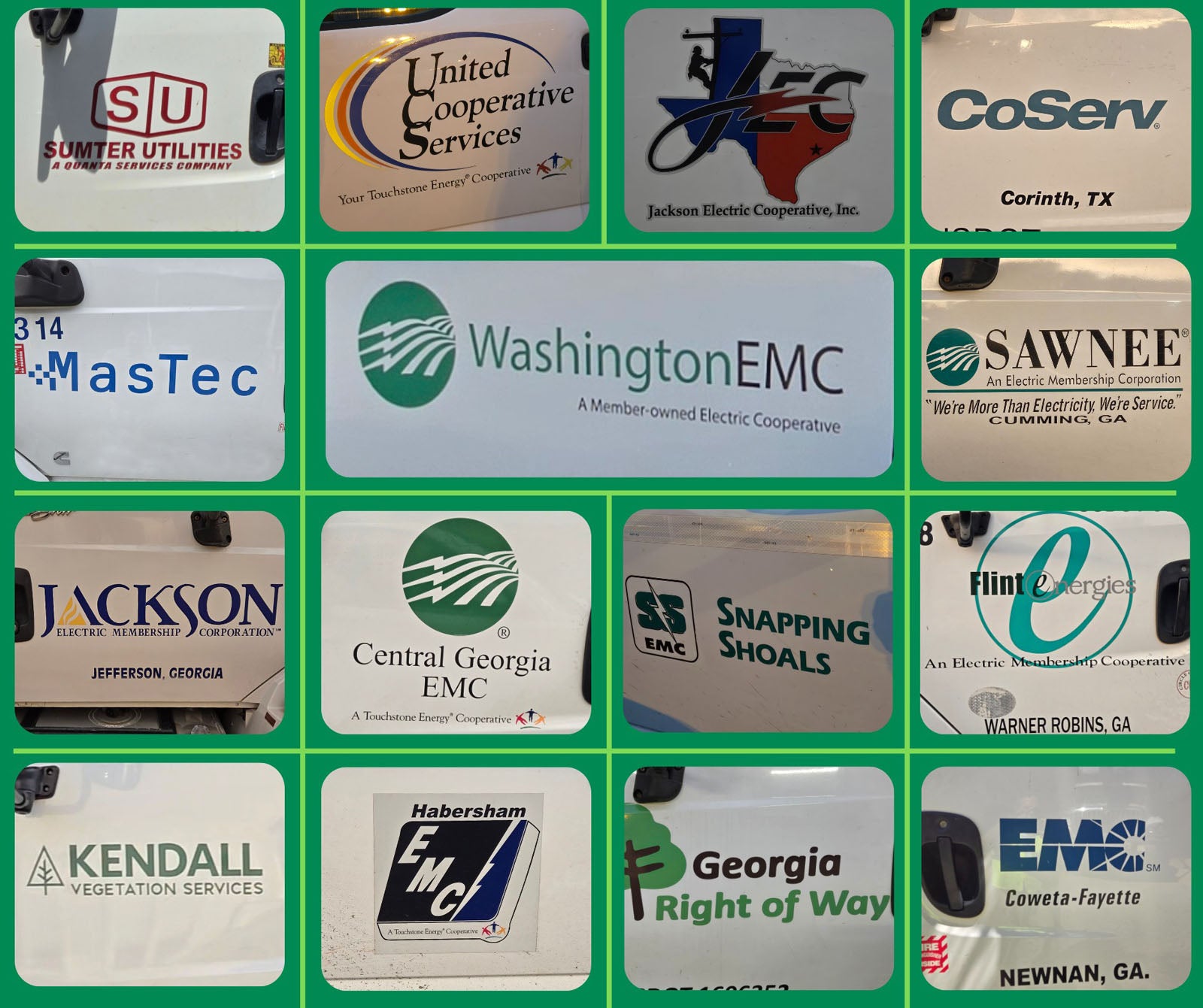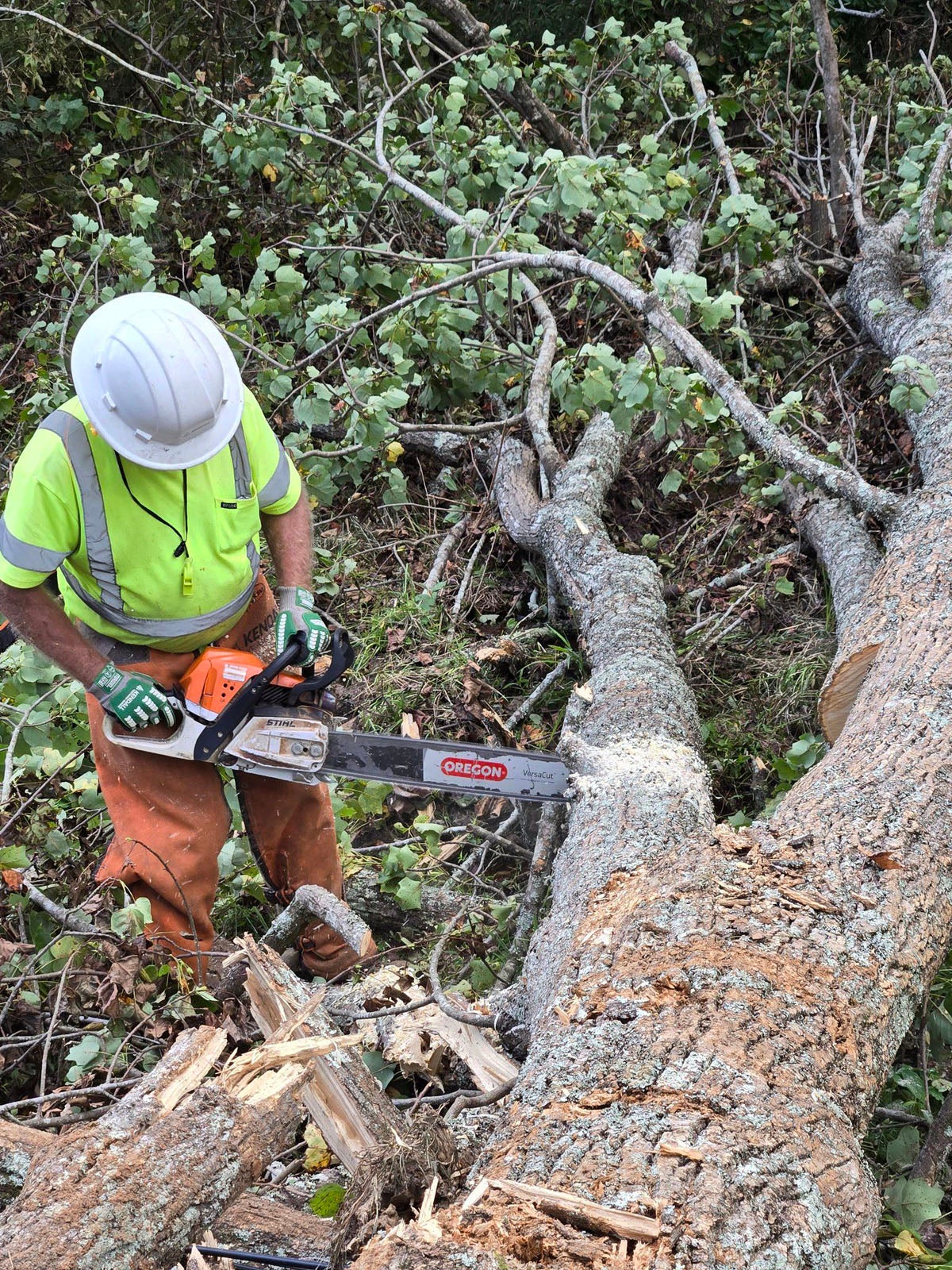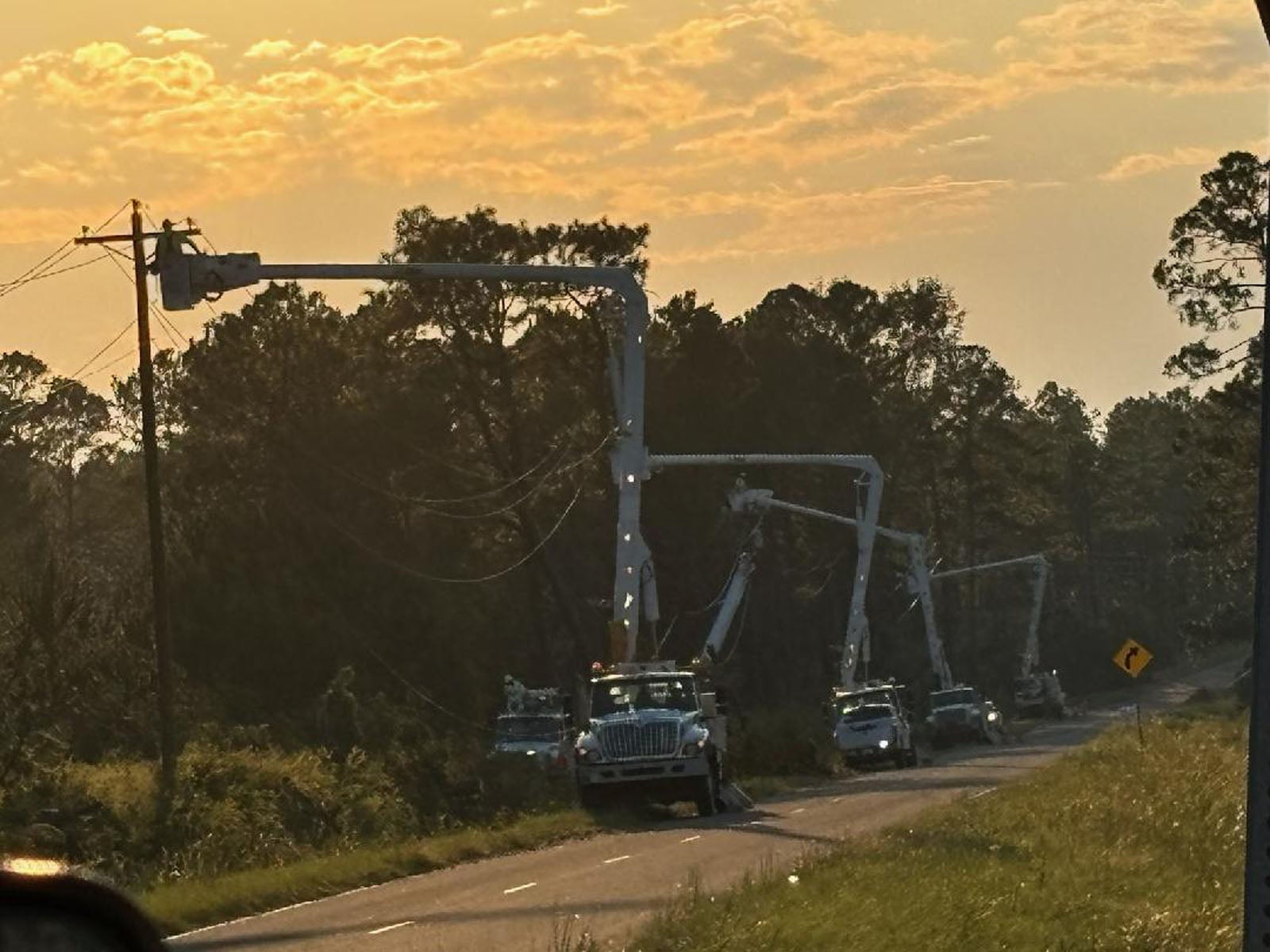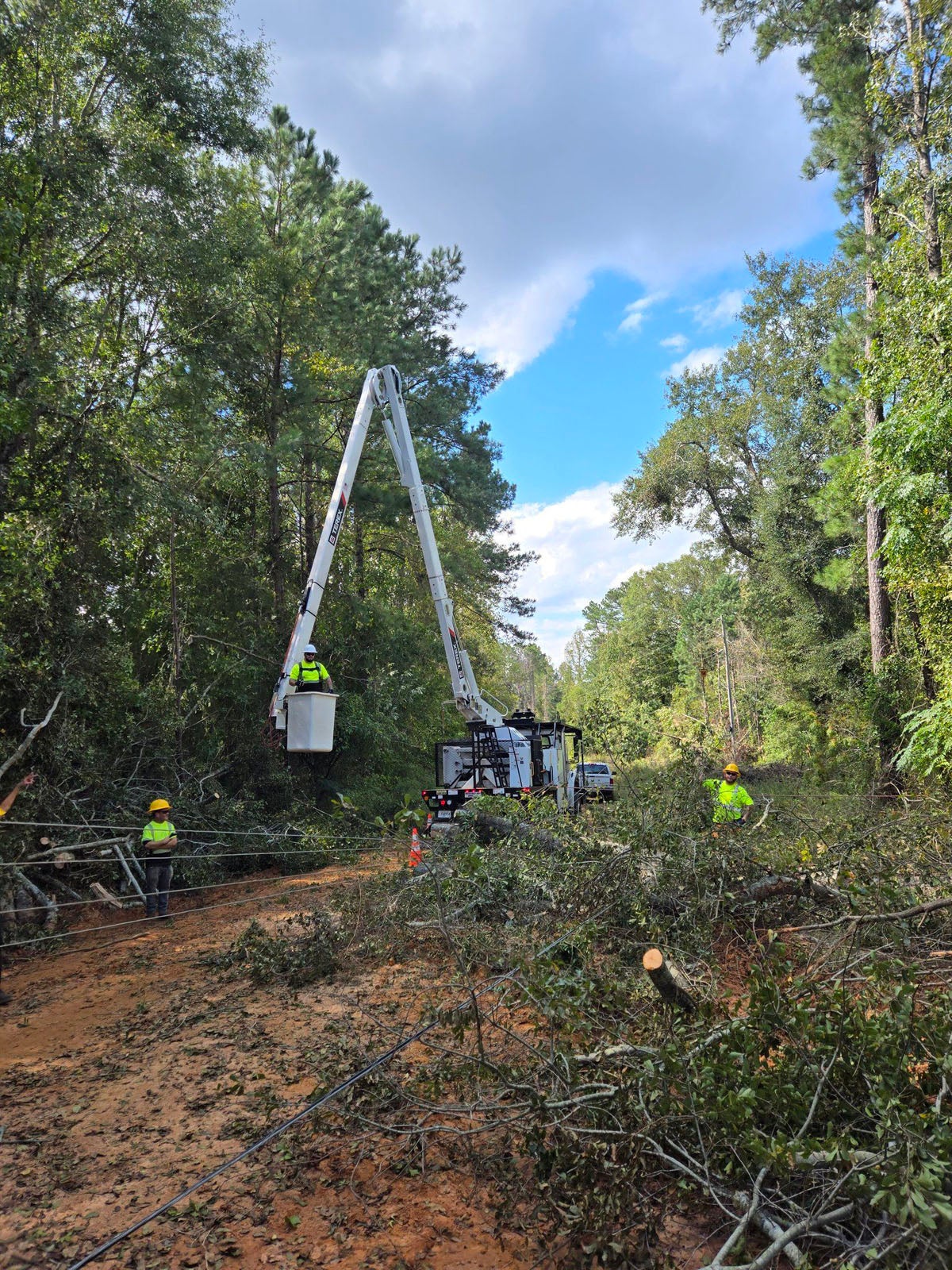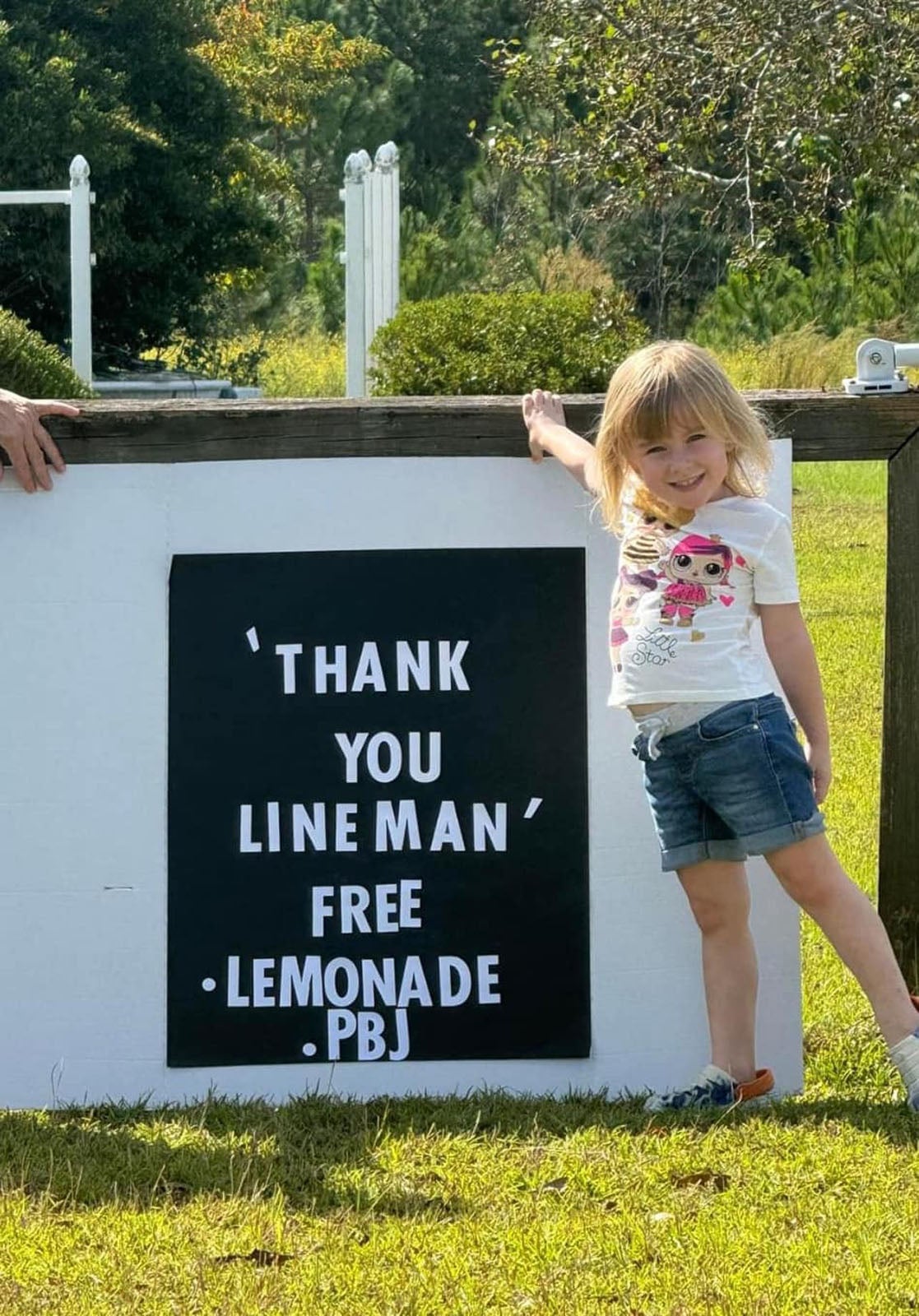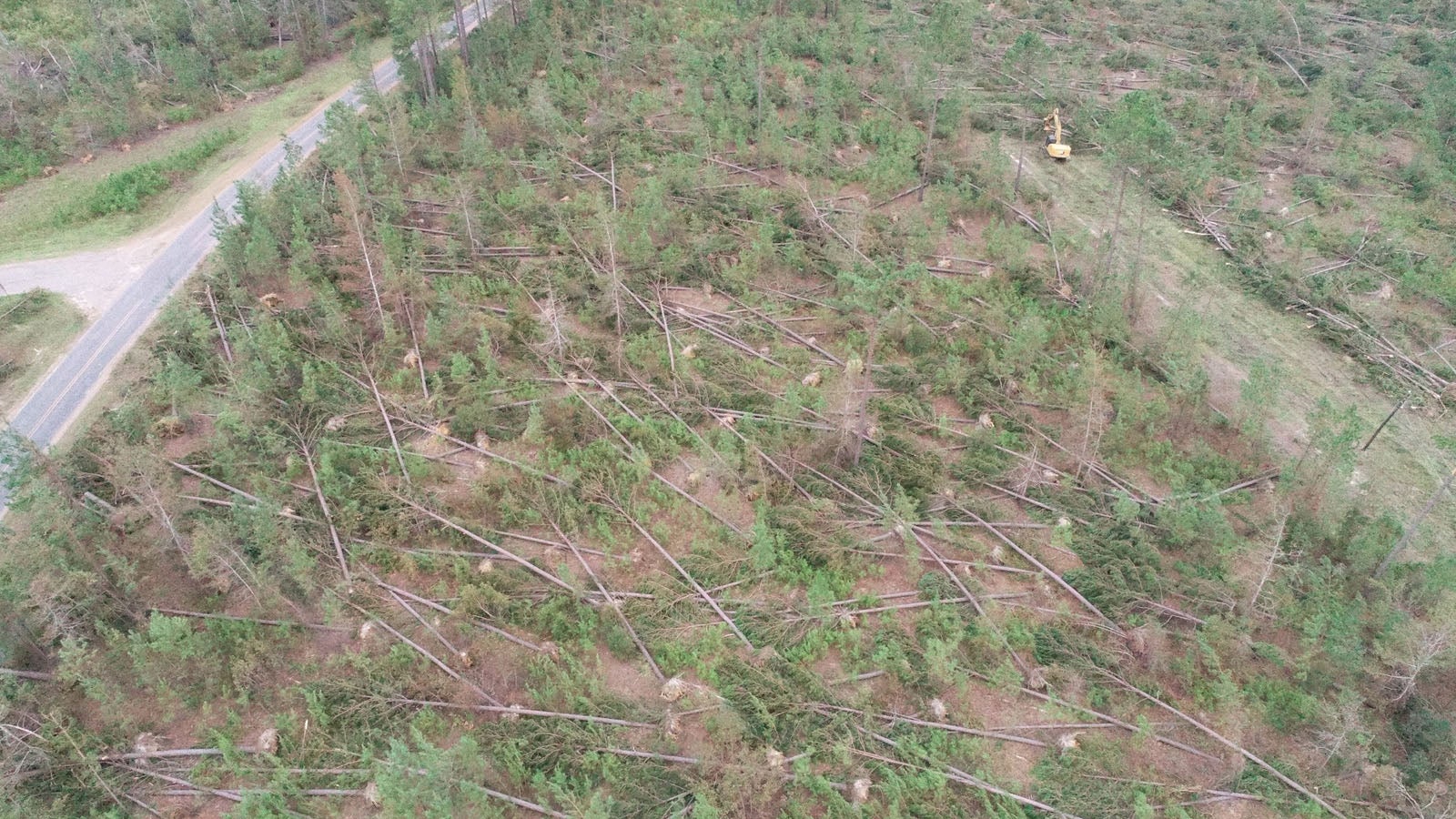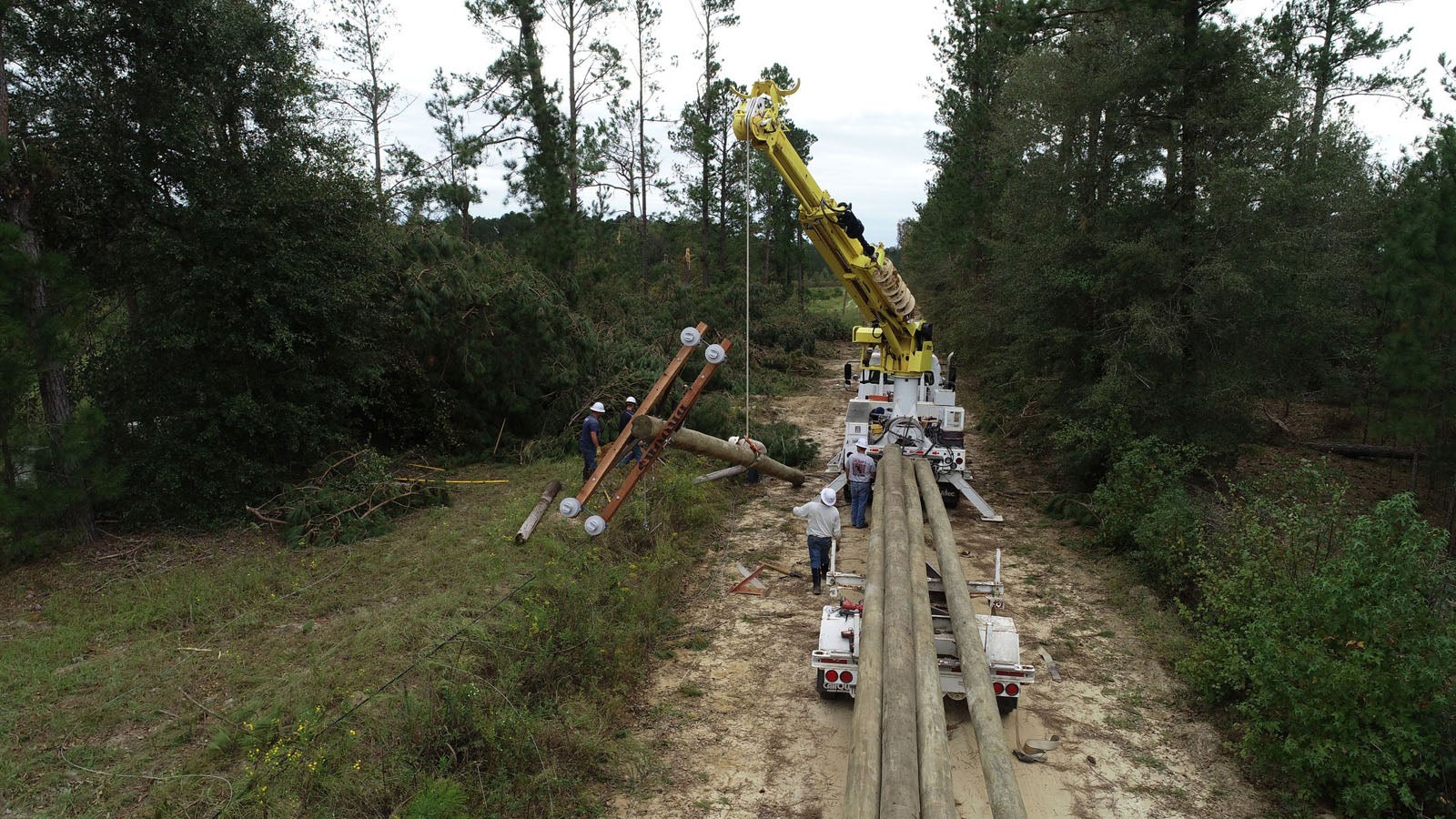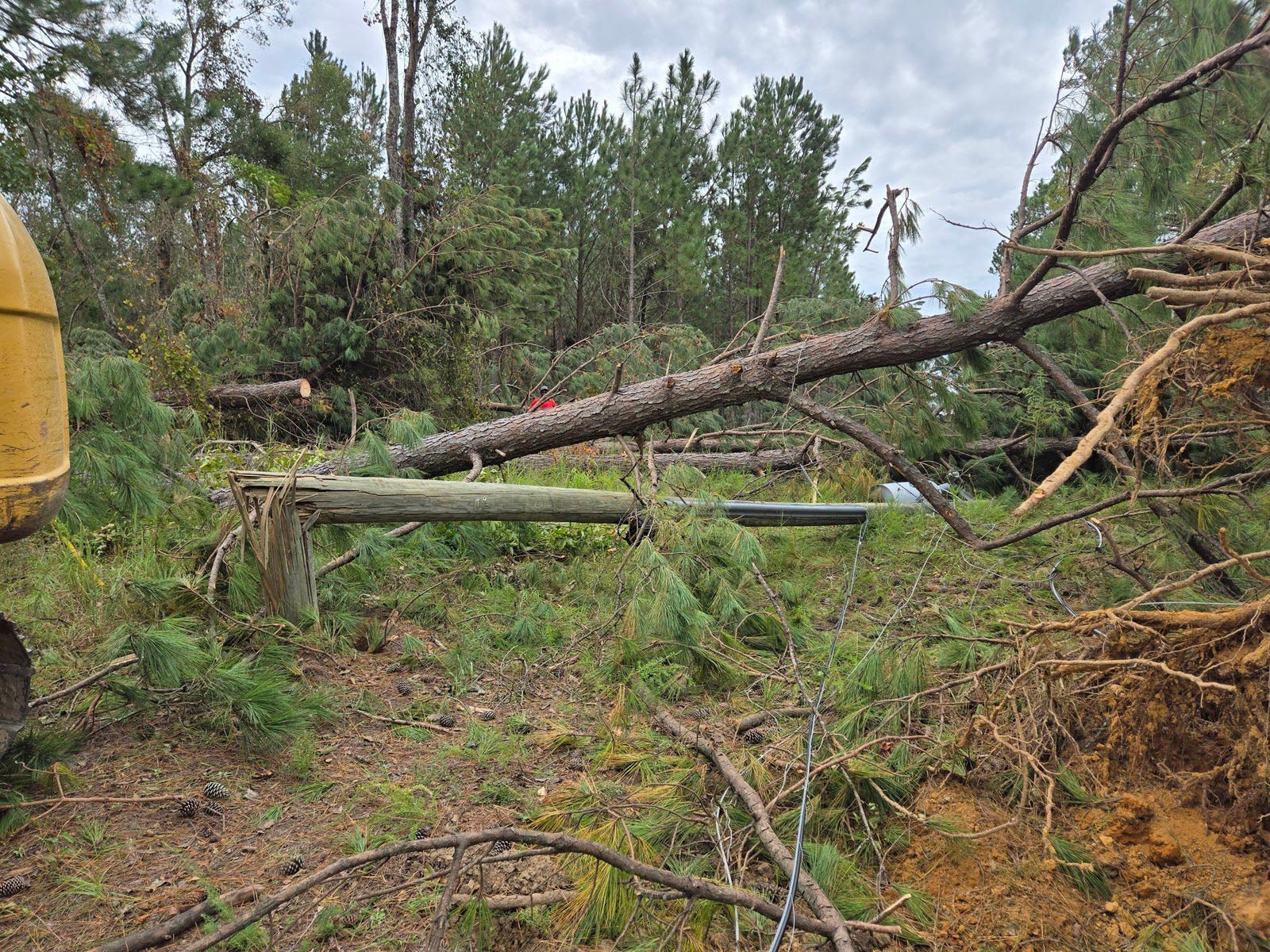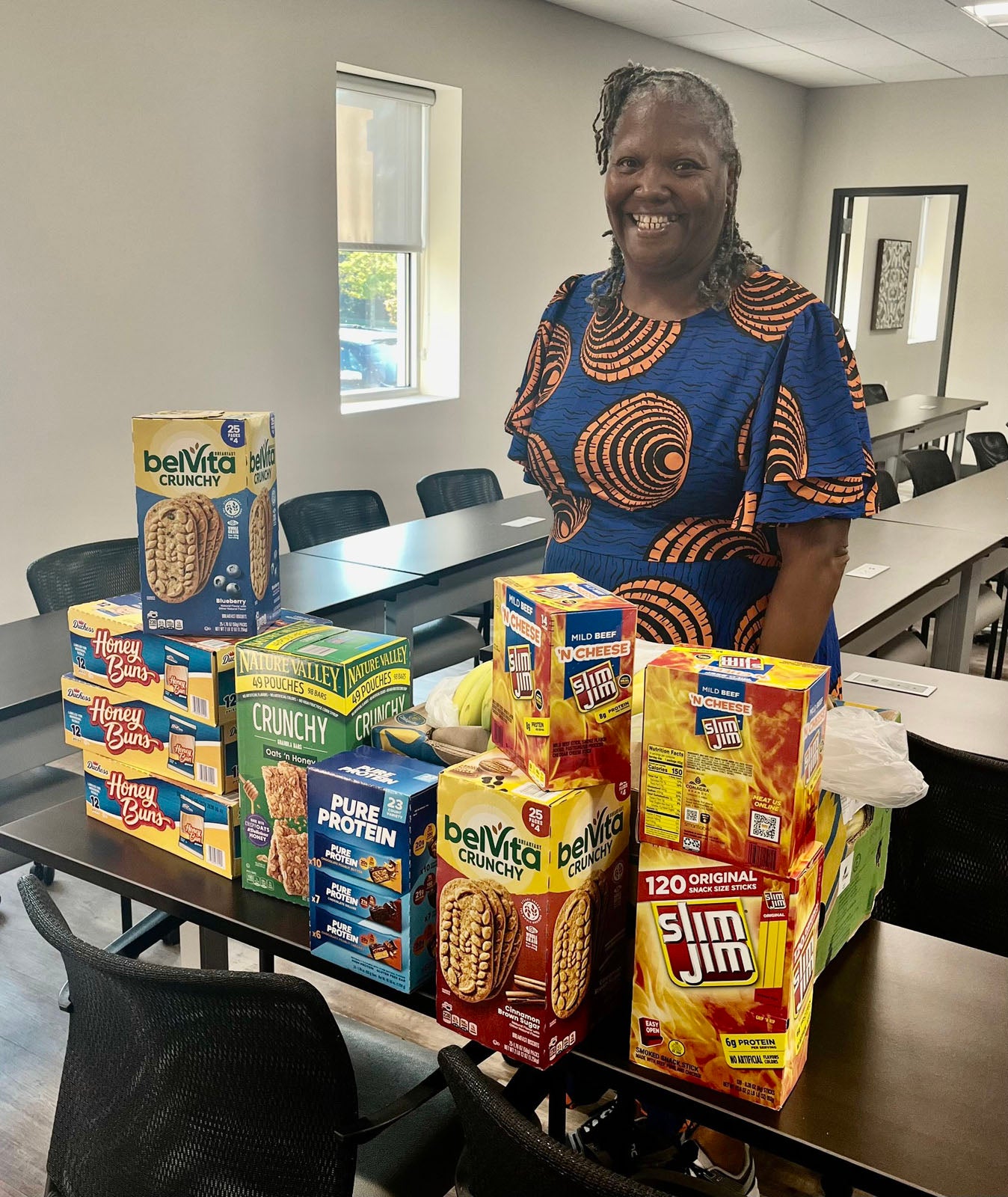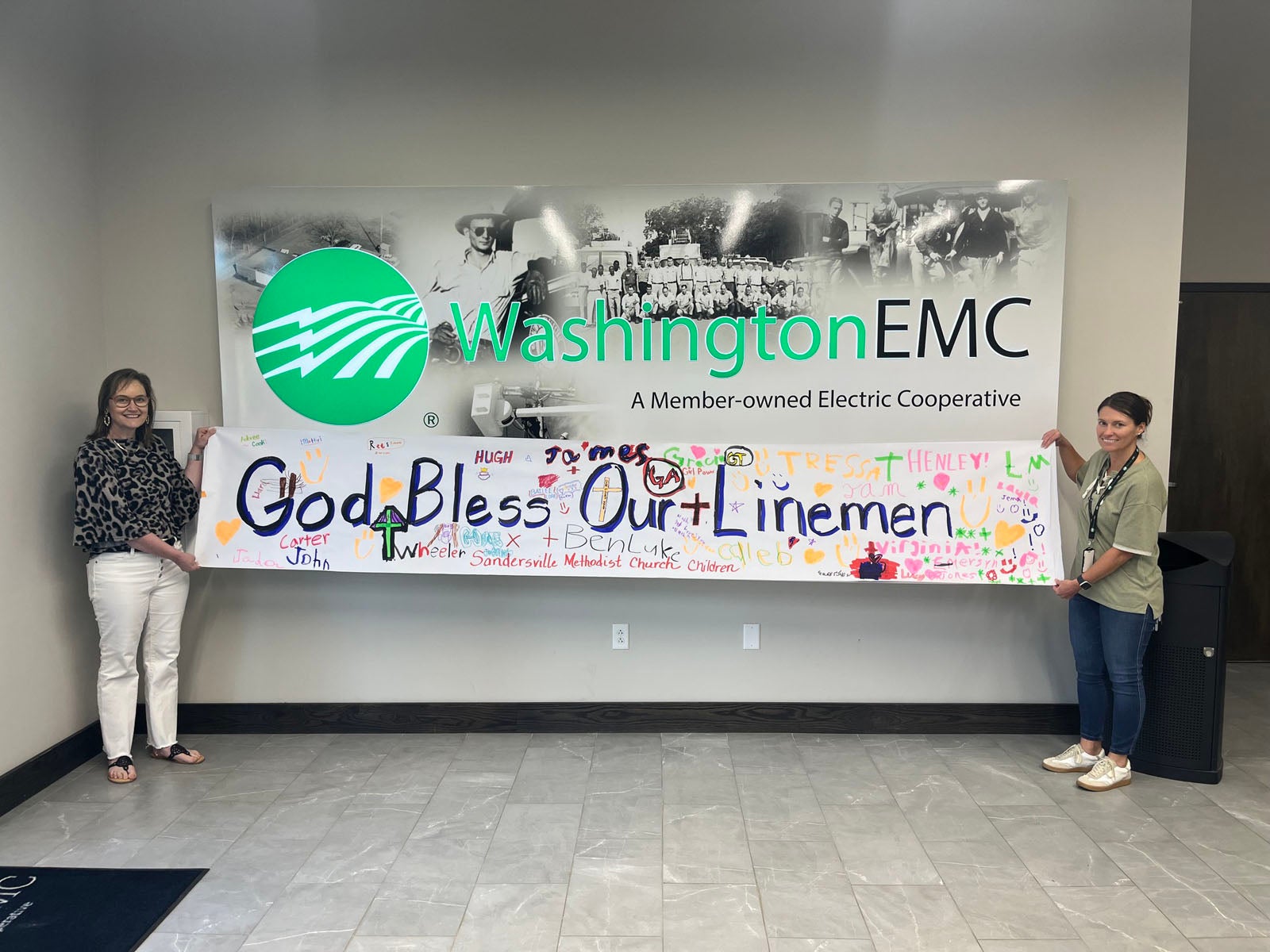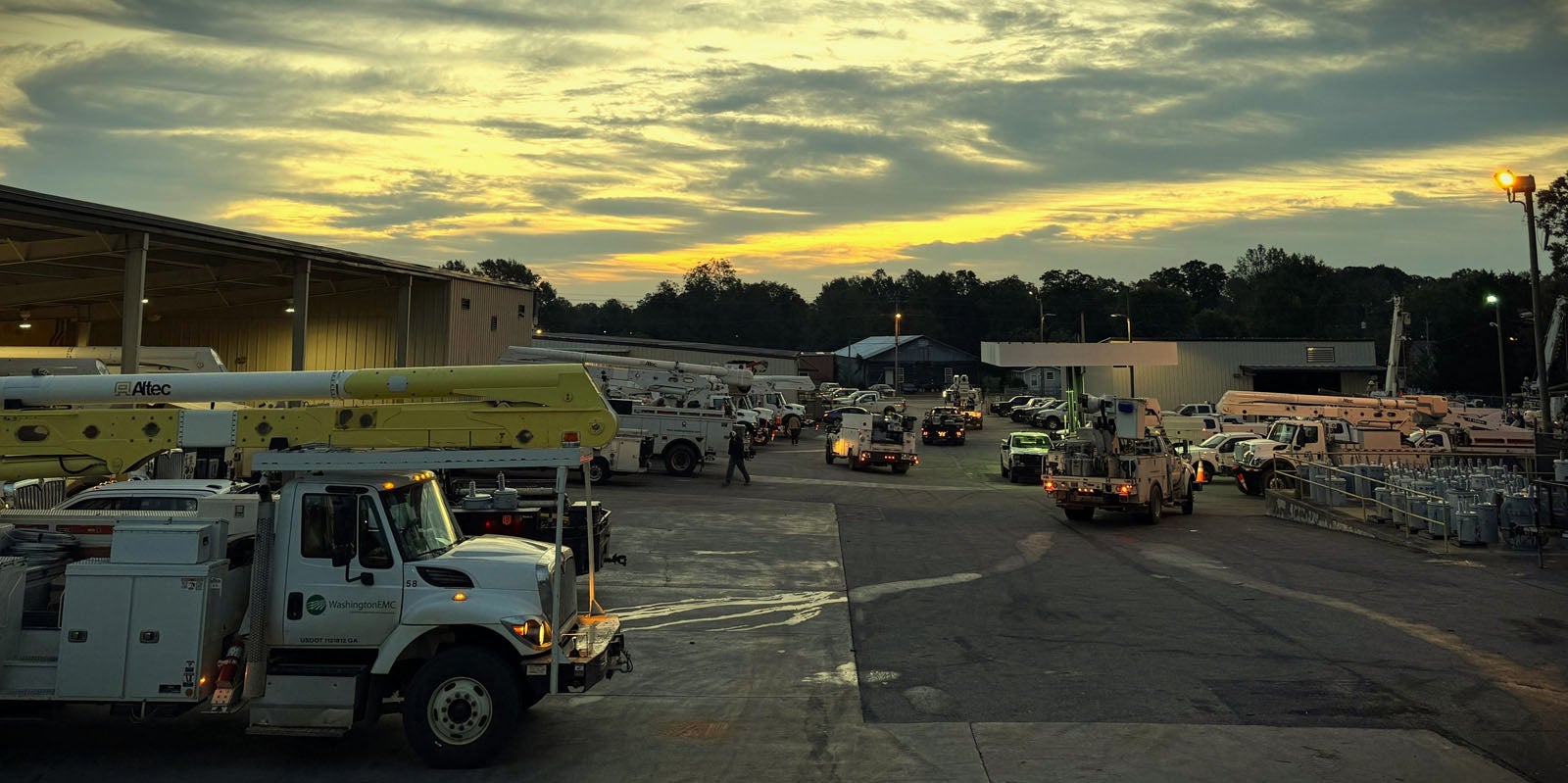In Preparation for Hurricane Helene, a Distress Signal Went Out From
Central Georgia and United Responded in the Nick of Time
by
MATT ARNOLD
The day began with preparation followed by prayers.
Cameron Smallwood, United Cooperative Services’ CEO, led the seven-man team in prayer for the safety of the crew and for all those who would be affected by Hurricane Helene.
At the time, Helene was still in the Gulf of Mexico, far away from land but poised to strike in the coming days.
It already had rained for days in Georgia and elsewhere in the South, saturating the ground in advance of what turned out to be a massive Category 4 hurricane slated to run straight through Central Georgia Electric Membership Corporation’s (Central Georgia EMC) territory near Jackson.
To prepare for the impending storm, officials from the Georgia co-op reached out to United for assistance.United’s crew answered the call, leaving on a sunny morning from the Burleson office headquarters, driving off into the cloudless day with six co-op trucks loaded with everything the team would need to help in the aftermath of Hurricane Helene. It would take two full days of driving to reach the affected area, and time was of the essence.
Blake Bourg, line crew chief at United’s Cleburne office, has seen hurricane damage before having worked on two previous out-of-state restorations. He knows well the equipment and vehicles needed to restore power in an unfamiliar, rural territory.
“We’ve got two big buckets, a little bucket, two one-tons and a dangle digger going with us,” Bourg said. “We’re taking a mule to get into some places that a pickup won’t be able to get to, and our climbing gear to climb those poles that we can’t get a truck to.”
Dean Koltz, apprentice lineman I, has never ventured out on a restoration trip before. The Wisconsin native joined the co-op slightly less than a year ago and hasn’t seen as much as his more seasoned coworkers.
Koltz said he was excited to work with new people and has never been to Georgia or the Southeast before. He and his wife have a 1-year-old and another on the way that’s due in January. Leaving home for this amount of time is new for him.
“I always wanted to do this kind of work, and I knew what I signed up for when I did it,” he said.
The storm ravaged much of the Southeast region, tearing through Florida, Georgia, South Carolina, North Carolina and Tennessee.
Once Helene had passed, it became clear that Central Georgia EMC had weathered the storm better than expected and would not need the United crew. They had only suffered outages to less than six percent of the co-op’s membership.
Less than 80 miles away, the storm painted an entirely different picture for Washington Electric Membership Corporation (Washington EMC) in Sandersville, Ga. More than 86 percent of their 15,975 members were without power.
The crew switched gears and headed to the aid of the stricken co-op.
Sandersville sits directly in the middle of Washington EMC’s service territory on the dividing line between the Piedmont Plateau and the Atlantic Coastal Plain, about 60 miles southwest of Augusta.
To the north, the terrain becomes hilly with higher elevations. To the south, the coastal plain stretches out into the distance. Red clay soil, swamplands and a mix of pine and hardwood forest cover the rural territory.
Line Crew Chief Jackie Carter said this restoration is personal. He said he has family in Georgia and the Carolinas. Having spent time in Central Georgia, he undersands the topography and what his crew is up against.
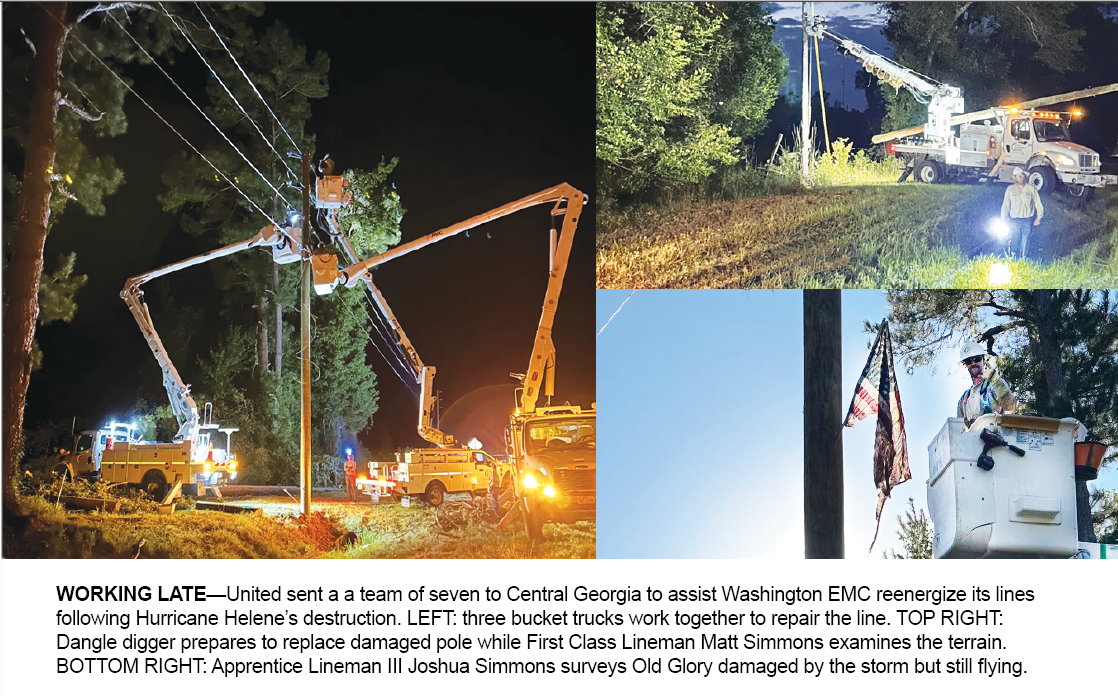 “A lot of pine trees,” Carter said. “With this hurricane, there could be a lot of pop-up tornadoes causing downed trees. The problem with pine trees is that they’re so tall and skinny, they can just snap. Another problem they’ve got is a vine called kudzu. It will choke a tree out, so you have a lot of dead trees that can get pretty brittle and break.”
“A lot of pine trees,” Carter said. “With this hurricane, there could be a lot of pop-up tornadoes causing downed trees. The problem with pine trees is that they’re so tall and skinny, they can just snap. Another problem they’ve got is a vine called kudzu. It will choke a tree out, so you have a lot of dead trees that can get pretty brittle and break.”
Three days after the hurricane, Washington EMC and more than 250 linemen from the nation’s electric cooperatives who joined them to help had made some progress, but it was clear that this was going to be a long process. The co-op had restored service to more than 4,000 meters out of nearly 14,000 meters that were out, leaving the total without power less than 10,000.
By day six, crews had cut the number of meters out in half, to nearly 7,000.
Washington EMC’s President/CEO Wendy H. Sellers updated members on the state of the co-op in a message over social media.
“Washington EMC, like many other utilities in Georgia, experienced widespread, catastrophic damage to our electric system,” Sellers wrote. “This is an unprecedented storm that has affected all ten counties that we serve. Restoration will take time. We know that your power is out, and we won’t stop until every member’s power has been restored.”
In the coming days, United crews will continue to assist Washington EMC until the outages have all been resolved or United’s assistance is complete says Ed Nuñez, manager of operations for United.
“Once our assistance isn’t needed, we will step out of the way,” Nuñez said. “It’s very important that when you have several hundred linemen working on a system that they are not familiar with, coordination is critical.”
This restoration is the fourth one that United has been involved in during 2024 and looks as though it will be the longest one as well, said Nuñez.
As of press time, the crew was still dispatched.
While the United line crew works long hours far from home, United CEO Cameron Smallwood says he is grateful for their service during this difficult time. He says the sacrifices these men make to help others are truly an act of selfless service, and they represent what’s best about the co-op.
“We abide by the seven cooperative principles,” Smallwood said. “The sixth principle is cooperation among cooperatives. In that spirit, we sent our team to Georgia in anticipation of the damage caused by Hurricane Helene. As the restoration continues, we hope that our crew stays safe and that the members of Washington EMC get restored to power as quickly as possible. Our prayers continue to be with the members and our linemen.”



